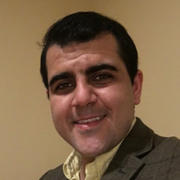
On March 29th, CSWR resident Nariman Aavani presented his work on self-identity in the poetry of Rumi. A summary of his talk can be found below.
As human beings who live in the modern world, our identity is defined to a great extent through the particular roles that we play in society and the external tags that the socio-political context of our lived-experience places on us. In this way one is called a doctor, a student, a professor, mother, sister, American, Iranian, Muslim, etc. However, for Mawlānā Jalāl al-Dīn Rūmī (d. 1273), a great Persian Sufi master, this type of identity is a sign of forgetting the true nature of our human existence. In a famous poem he declares that he is neither of the East nor of the west, neither a Muslim nor a Christian (or a follower of any of the religions), neither of earth nor of heaven. But who are we and what is the self if neither of these description is of any help? Rumi’s response is that our relation to God is the true sense in which we are human:
My place is the Placeless, my trace is the Traceless;
I am neither body nor soul, for I am the Beloved Himself.
I have put duality away, I have seen that the two worlds are one;
One I seek, One I know, One I see, One I call.
He is the first, He is the last, He is the outward, He is the inward
(Nicholson’s translation with modification)
But if the Divine lies at the core of our existence and this is the true token of identity that we must be constantly aware of, how should we realize our true identity? Rumi’s response is “love”. Human beings are the only entities in which all the Divine Attributes and qualities are present, and Loving God will ultimately amount to loving one’s true self. But how should we feel this love? Rumi states that it is through observing the Divine commands, remembrance of God (dhikr) and keeping the company of the saints that one can realize this identity and actualize this love.
